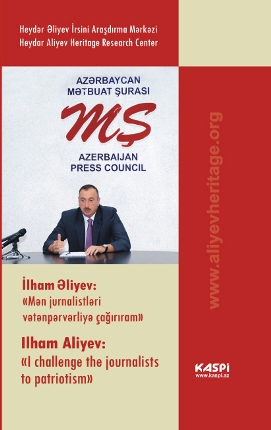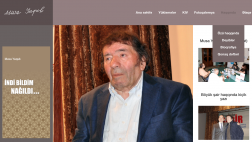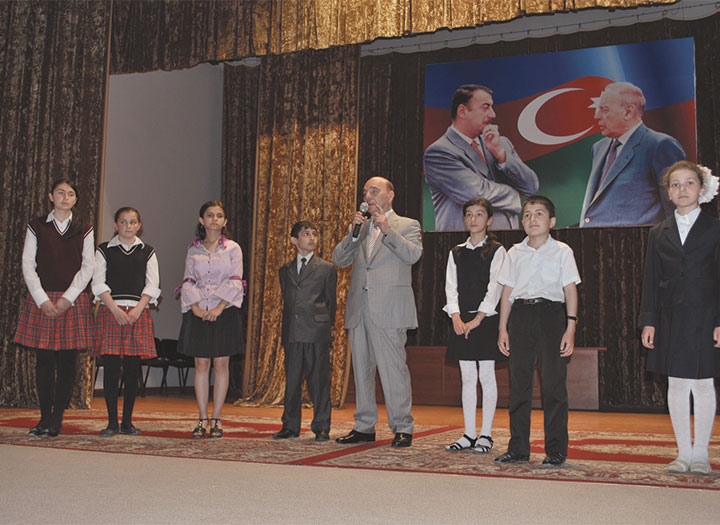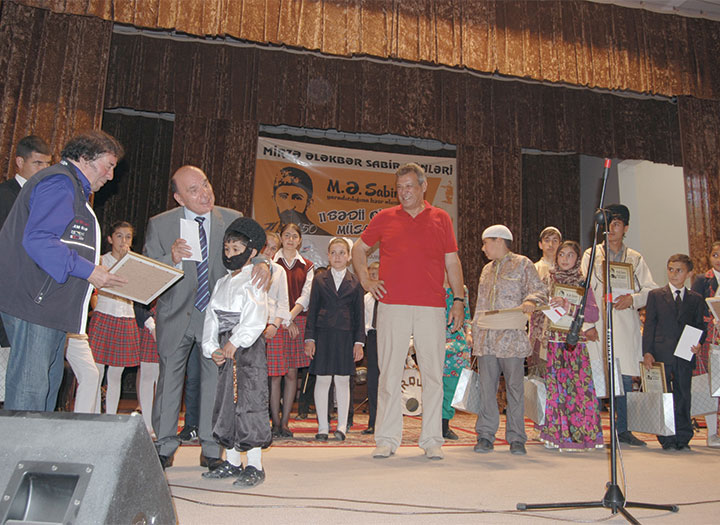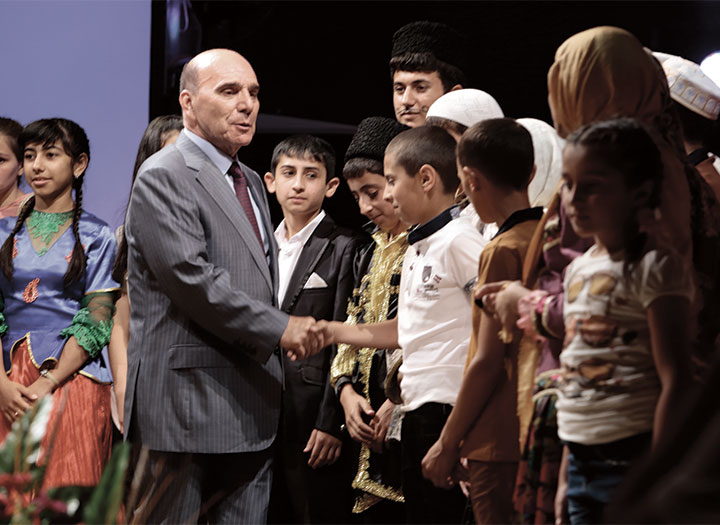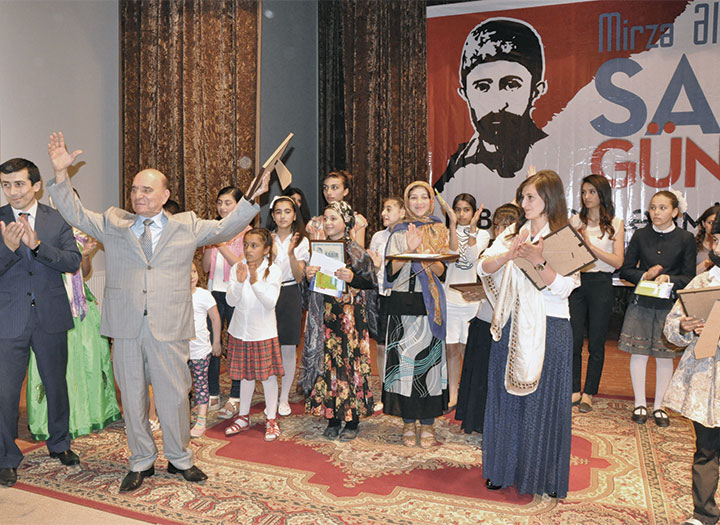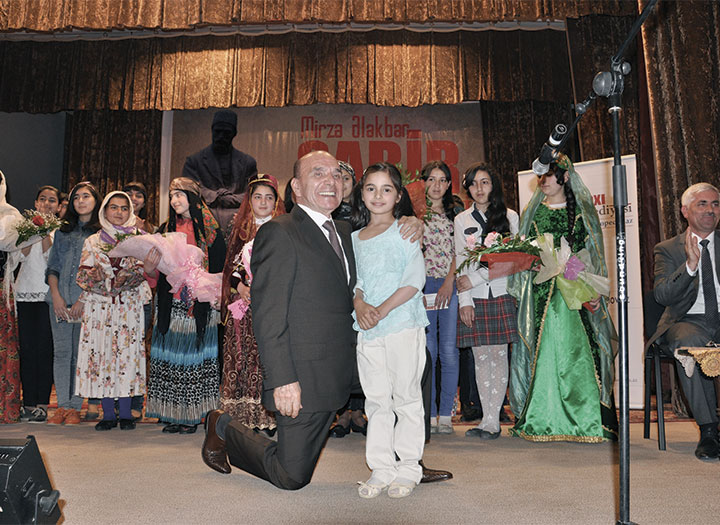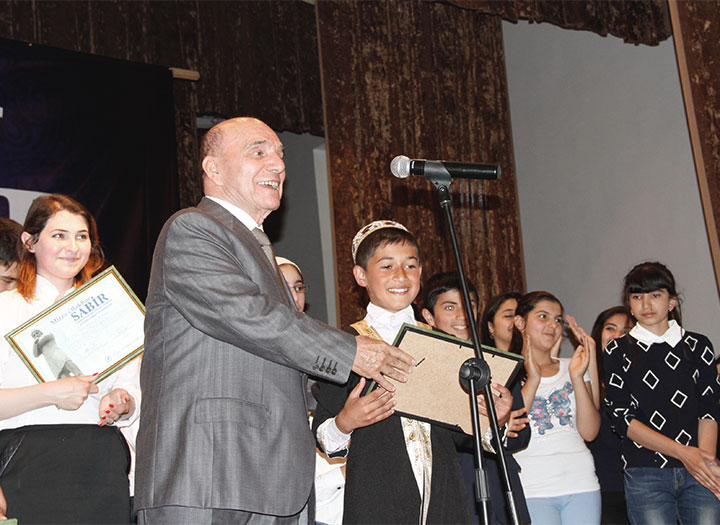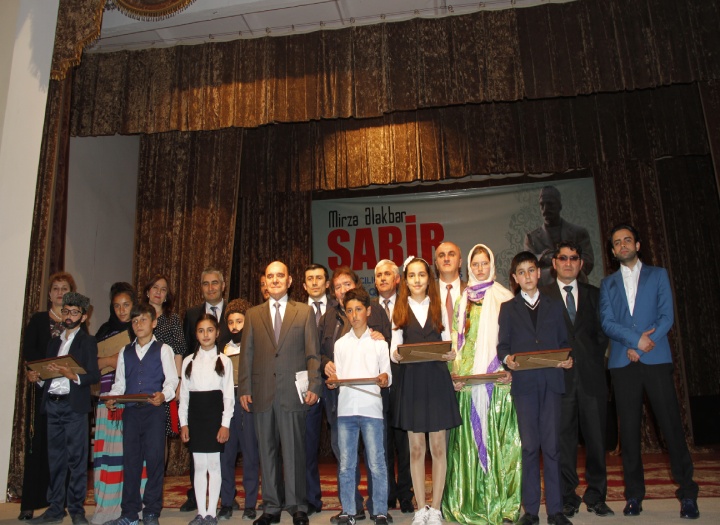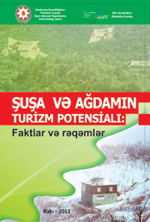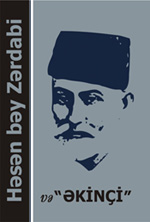 Trend Agency has organized a round table on Azerbaijan’s role in the world and regional problems.
Trend Agency has organized a round table on Azerbaijan’s role in the world and regional problems.
Azerbaijani MPs Asim Mollazadeh and Rasim Musabayov, Jonathan Horsman and Jamie McConkey from “Project Associates”, and leading British media representatives, as well as experts from Trend Agency and AzerNews newspaper participated at the event.
While speaking about the Armenian-Azerbaijani Nagorno-Karabakh conflict, Musabayov said that his prognosis is not optimistic.
“The negotiations are not being held between the parties because the parties can not agree even on their direction,” Musabeyov said.
“The military rhetoric is being toughened,” he said. “The situation on the front line is worsening. This does not add optimism about a quick solution to the Nagorno-Karabakh conflict.”
He added that Moscow ceased to be an active mediator. There is no active influence on the negotiations from the U.S., the second co-chairing country of the Minsk Group.
He stressed that the situation could worsen because of Azerbaijan’s reaction to Yerevan’s constant provocations, in particular, because of Armenia’s plans to open an airport in Khojaly and start illegal flights over the Azerbaijani territory, despite the provisions of the Chicago Convention.
Mollazadeh added that Armenia’s plans to inhabit refugees from Syria at the occupied territories and build the illegal settlements for them in the Azerbaijani territory are a new challenge.
Mollazadeh said that Armenia’s actions to open an airport in Khojaly are even more provocative amid one of the most violent events in modern history – the Khojaly genocide, the anniversary of which is marked on February 26.
“In 1992, Armenian armed forces committed a cruel act of genocide against the Khojaly population,” he said. “As a result of the massacre of civilians, 613 people were killed, 487 people from the civilian population became disabled as a result of bullet wounds.”
He added that more countries have recently recognized the fact of the Khojaly genocide, including European countries thanks to Baku’s diplomatic success.
The military scenario could also occur if Moscow wants it. Moscow may push Armenia to take some provocative steps.
Mollazadeh said that he does not expect a military scenario in the Nagorno-Karabakh conflict. However, he agreed that Moscow has influence on the course of the Nagorno-Karabakh conflict.
Geography of these conflicts coincides with the geography of Soviet and Russian military bases in South Ossetia, Abkhazia, Transnistria. Behind all these conflicts always we had this real involvement of Russian military troops to the conflicts and territory of the former Soviet Union, he said.
“I don’t think that we have any chances to solve this conflict without serious reforms in Russia without serious changes in Russia,” he said.
“We have a biggest Russian community in South Caucasus in Azerbaijan,” he said. “Russians are active citizens of this country. We have Russian members of parliament, we have a lot of Russian organizations. Still for us Russia is a priority.”
With regard to Azerbaijan’s role in the region, Mollazadeh noted Azerbaijan’s increasing role as supplier of energy resources and the importance of the new railroad connecting Europe, South Caucasus, Kazakhstan and China which will become a bridge between East and West. He said today the military presence in the region is rather small, as the economic component is weakening.
“Russia’s claims to dominance in the region are illusory. We are not against Russia, but we want to see the country as a partner, not as a patron,” Musabayov said.
As for situation in Georgia, Mollazadeh said the integration into NATO remains a priority for the Georgian government. He noted that Russia is not ready to make concessions in the issues surrounding Abkhazia and South Ossetia, but it’s good that trade relations between the two countries are improving.
In Musabayov’s opinion, in historical perspective, Russia is gradually leaving the South Caucasus region.
Head of Trend’s Russian News Service Seymur Aliyev spoke about the situation in energy sector of Azerbaijan, energy projects implemented by the country, as well as Azerbaijan’s role in ensuring energy security in Europe.
He said, today Azerbaijan is self-sufficient in energy and also supplies energy resources to neighboring countries.
In addition, Azerbaijan has sufficient resources to supply gas to Europe.
“One of the two projects, either Trans Adriatic Pipeline (TAP) or Nabucco West will be implemented in the near future. The project that offers the most favorable transportation tariffs and conditions will be chosen,” he said.
Aliyev did not rule out that in the future the East-Caspian energy resources may also be transported to Europe by the routes established by Azerbaijan on its territory, as well as in Georgia and Turkey.
Musabayov said Nabucco no longer exists in the previously planned form.
“The pipes from Baku to Turkey’s border with Europe are laid separately. There is a Nabucco West project. But this is a purely European project. It needs to be built, financed and acceptable conditions and transportation tariffs have to be offered. Also, there is the so-called Trans-Caspian gas pipeline, which can provide deliveries of Central Asian gas resources, especially from Kazakhstan and Turkmenistan to Europe via Azerbaijan and the pipeline system created by Azerbaijan. But Trans-Caspian project concerns European consumers,” he said.
Musabayov said the EU should negotiate with Russia and Turkmenistan on this issue. Azerbaijan has prepared the necessary infrastructure and is ready to be a transit country.
“Additional volumes of Turkmen gas will be produced and Azerbaijan is ready to lay the pipeline in a very short period of time, within a year,” he said.
“Azerbaijani pipelines may transport the discussed volumes of Turkmen gas – up to 30 billion cubic meters,” Musabeyov said.
According to Mollazadeh, Azerbaijan is not involved in these projects by itself, but along with Western partners, in particular with BP, which is now a member of the TANAP project (Trans-Anatolian pipeline), Norwegian Statoil, as well as American and Turkish companies.
“International consortium is working within the TANAP project. And as far as I know the preliminary agreement was reached recently on the TAP project. There is competition between Nabucco and TAP, but this competition actively involves Italian and Swiss companies. Azerbaijani gas will contribute to implementation of energy projects in these countries, which refuse to use nuclear energy. In this situation, Azerbaijan has reliable partners, and especially BP, which is working with us on the project for development of the Shah Deniz gas field. Azerbaijan has great gas potential in many other projects. I think our cooperation will continue,” Mollazadeh said.
Regarding the situation in the region around Iran, Azerbaijani experts agreed that in the case of aggravation of the situation and military action against the country, Azerbaijan will not interfere due to the lack of resources and motivation.
According to Musabeyov, minimization of the threat to the country is of primary importance for Baku.
As of the situation in Iran itself, Trend’s Iran News Service Chief Dalga Khatinoglu answered the questions of Western journalists, noting that sanctions against Iran affect not only the government, but ordinary people as well.
“Over the last year, the export of Iranian oil has halved, oil production has declined by 40 percent, the currency has fallen by half, inflation rate, according to official statistics, constitutes 32 percent. Medication costs tripled with some of the medicine not being available at all. Due to the embargo, imposed by West against Iran on export of gasoline, the latter leads to hazardous air pollution in the country and threatens public health. Such examples are numerous, however Iran is determined to continue its nuclear program,” he said.
Khatinoglu added that the more Iran loses due to sanctions, the less it is determined to pull back and compromise on its nuclear program.
According to Khatinoglu, the country’s safety is the priority for Iranian government, and in this context, the result may only be achieved through discussions between Iran and the West.
